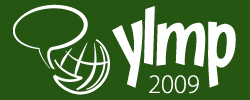workshops
We are going to organise the following workshop sessions:
- workshop in corpus pattern analysis
- workshop in neurolinguistis
- The basics of the brain's anatomy.
- Cerebral organisation of the first language (L1) and the second language (L2).
- Various neuroimaging techniques, such as functional Magnetic Resonance Imaging (fMRI) and Positron Emission Tomography (PET).
- Intraoperative Electrical Stimulation of the brain that is performed to localise and spare language functional areas before extraction of brain tissue in patients with tumors and epilepsy.
- workshop in bilingual lexicography
title: technical aspect of dictionary making - workshop in sociolinguistics:
organiser: Prof. Patrick Hanks
description:
A new approach to the analysis of verb argument structure, addressing the following questions:
1. How should corpus evidence be analysed?
2. What is the relationship between word meaning and word use?
3. How are basic patterns of word use exploited to make new meanings?
4. What is the nature of a lexical ontology? Can an ontology contribute to the analysis of meaning?
Participants in the workshop will be given hands-on experience of practical lexical analysis using corpus evidence.
organiser: dr Monika Polczynska
participants:
dr Monika Polczynska, Adam Mickiewicz University
prof. Kanneth Hugdahl, University of Bergen and Haukeland University Hospital
prof. Anna Cieslicka, Adam Mickiewicz University
dr Karolina Rataj, Adam Mickiewicz University
description:
Neurolinguistics is the indertisciplinary science concerning the mechanisms of the human brain underlying language production and comprehension. The Workshop in Neurolinguistics will consist of three parts. The first part of the workshop is going to be conducted by dr Monika Polczynska from the School of English, Adam Mickiewicz University, who will make an introduction to the field of neuroanatomy. The following topics will be covered:
The second part of the workshop will be conducted by prof. Kenneth Hugdahl from the Department of Biological and Medical Psychology, University of Bergen, and the Division of Psychiatry, Haukeland University Hospital. Prof. Hugdahl will demonstrate how cognition, e.g. attention and working memory, modulates how the brain processes auditory information and speech sounds. The role of, e.g., attention in selecting what is perceived in a stream of information is often neglected in theories and models of how speech and language is represented in the brain. Similarly, cognition plays an important role in language-related disorders, e.g. dyslexia. The workshop will cover relevant research including neurospychological, lingusitic and brain imaging results.
In the third part of the workshop prof. Anna Cieslicka and dr Karolina Rataj from the School of English, Adam Mickiewicz University, will discuss figurative language impairment in schizophrenia and aphasia. Both schizophrenic and aphasic patients have been reported to suffer from a figurative language impairment, which affects comprehension of various types of nonliteral language such as metaphors, idiomatic expressions, proverbs and irony. The present workshop offers an overview of the major proposals that have been put forward in the literature to account for impaired language processing in these clinical populations. In addition, it discusses preliminary results of the studies which were conducted to explore the processing of figurative language by patients suffering from aphasia and schizophrenia. In one of them, patients performed a lexical decision task while the activation of figurative and literal content was examined in the analyses of reaction times and error rates. In another, off-line study, the Figurative Language Battery was prepared and administered, in which patients were asked to either finish or explain the meaning of figurative utterances. The results of both studies confirm previous findings in that both aphasic and schizophrenic patients experience difficulty in understanding figurative utterances.
organiser: Michal Jankowski, MA
description:
Based on his experiences as lexicographer, technical editor and computer programmer in several bilingual dictionary projects, Michal Jankowski will present a practical overview of the technical aspects of dictionary making.
title: data collection in sociolinguistics and applied sociolinguistics
organisers: Prof. Miriam Meyerhoff, Dr Joanna Pawelczyk
description:
In this workshop, participants will explore issues in sociolinguistic data collection from how to identify a question/topic, through practical considerations in collecting data for qualitative or quantitative analysis. These include not only gaining access to speakers, formulating questionnaires, but ethical considerations too. We will give particular attention to situations of applied sociolinguistics, e.g. research in and about the use of language in various professional domains.
Materials will draw on the organisers' own research experience, but participants will work on the materials in small groups, problem- solving and brainstorming practical and theoretical issues in sociolinguistic data collection.

